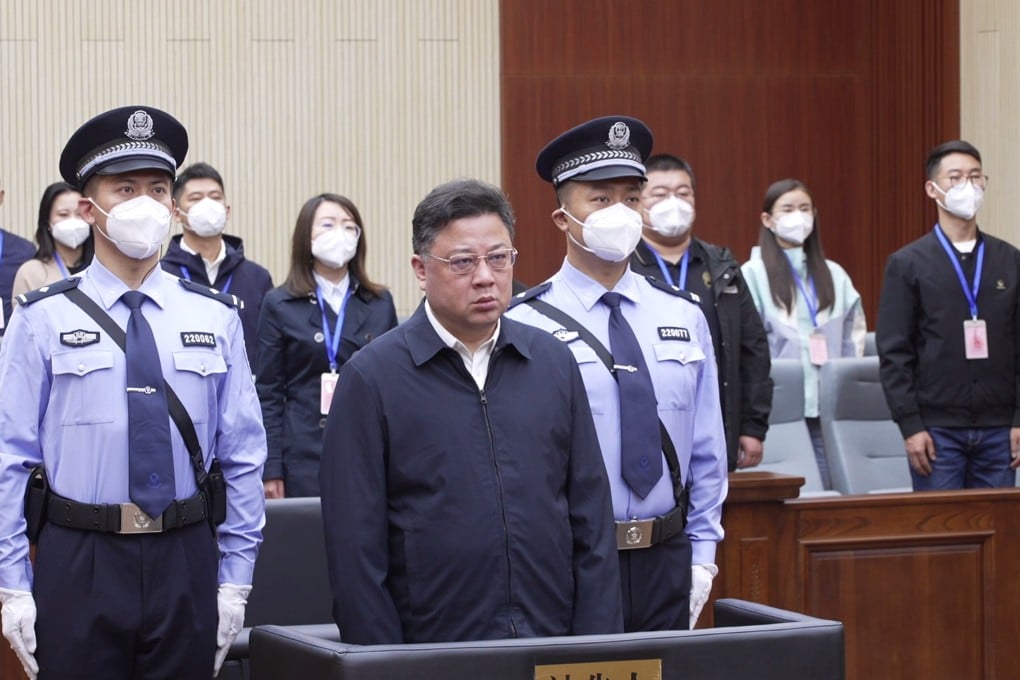Chinese ‘political clique’ leader Sun Lijun faces life in jail for corruption as law enforcement purge winds down
- The former deputy security minister accused of being disloyal to Xi Jinping was given a suspended death sentence
- Five other members of Sun’s faction have been sentenced this week as the purge winds down ahead of a major leadership reshuffle

Sun’s sentencing came after five former police chiefs who were implicated in his corruption case were jailed earlier this week, indicating that the biggest purge in China’s security apparatus over the last five years is drawing to a close.
Sun, 53, received a suspended death sentence that could be commuted to life in prison without parole after two years.
In June he pleaded guilty to accepting bribes totalling 646 million yuan (US$91 million) in exchange for business favours, government jobs and promotions; helping criminals evade justice; manipulating the securities market; and illegal possession of firearms, state broadcaster CCTV reported.
All of his personal property and illegal gains would also be confiscated, CCTV said, citing a statement from the Changchun Intermediate People’s Court in the northeastern province of Jilin.